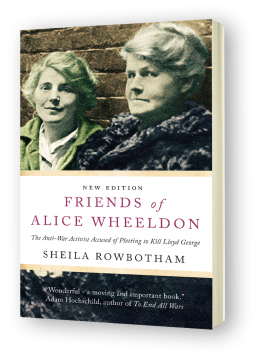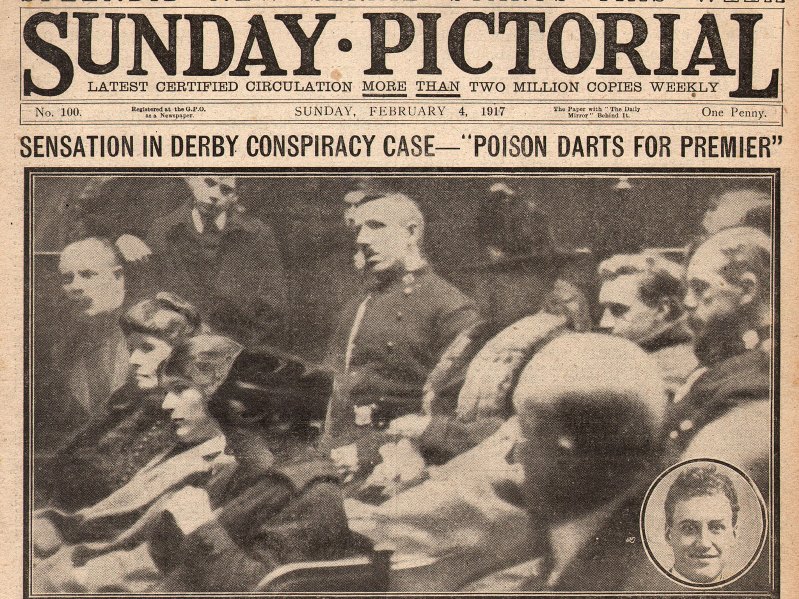It’s funny how you come across things. Back in 2006 I spoke at a Writing on the Wall event in Liverpool and over breakfast the next morning I had a conversation with writer Clive Hopwood. Clive has written almost one hundred books for children and has had twenty plays performed.
I said that I would like to write a play about an old people’s home (something which I have only this month completed!). Clive said that years ago he had been involved in a reminiscence project with elderly people which resulted in a publication, Those Were The Days.
One old lady, Beatrice Seaton, born in Derby, but retired in a nursing home in Wales, told him about her Edwardian childhood, about one of her brothers dying in infancy. Then she added: “I had one teacher who tried to poison Lloyd George.”
My eyes shot open.
Lloyd George, the man who in December 1921, issued an ultimatum to the republican delegation, including Michael Collins, that if they didn’t sign the Treaty before 10pm the result would be “immediate and terrible war”.
I thought: how different would history have been had Beatrice Seaton’s teacher been successful? How different would it have been had the delegation not buckled under that threat but walked away and the Republican Movement remained united to negotiate another day?
Beatrice had told Clive that her teacher – who was a Suffragette – had sent some poisoned chocolates to Lloyd George, who was then British Prime Minster, but that she was caught and went to jail. She said, “And her mother – I have in mind her mother died in jail. Suffragettes were big at the time, just before the war, and she taught us a song for a concert:
“‘Don’t forget it, don’t forget it,
Soon the ladies into parliament will go,
Don’t forget it, don’t forget it,
If they do you’ll know!’”
 In opposition Lloyd George had been a supporter of women’s rights but did little to help the cause when he was in power.
In opposition Lloyd George had been a supporter of women’s rights but did little to help the cause when he was in power.
Researching the story I discovered that Beatrice was right in the broad thrust of her recollections though she was probably referring to the case of Alice Wheeldon from Derby; her daughter Harriet Ann (who was probably the teacher); and Alice’s married daughter and son-in-law Winnie and Alfred George Mason. They were all charged with conspiring to murder Lloyd George – not with venomous Dairy Box chocolates! – but with poison darts. It was later alleged that the accused were set up by British Intelligence through the use of an agent provocateur and that Alice Wheeldon had been singled out because she had been hiding conscientious objectors (men who didn’t want to fight in World War One).
She was sentenced to ten years hard labour but was released after the war in a weakened condition, died and was buried in an unmarked grave. Her daughter Winnie and husband were sentenced to five and seven years respectively, and Harriet Ann, who had been held on remand, was acquitted.


